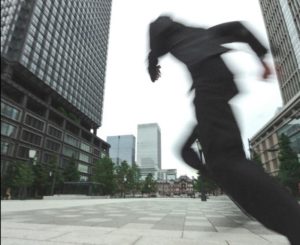Antonym:あんぜん(anzen) vs. きけん(kiken)
What is the difference between “あんぜん(anzen) and きけん(kiken)”? Which is used as the meaning of “safe”? After reading this, you would be answering this question. Let me introduce what their subtle differences are and how you correctly use them such as native speakers today!
あんぜん (anzen)
Safe / 安全 / 안전 / An toàn
“あんぜん(anzen)” means “Safe” and which has been used as the meaning of “not in danger or likely to be harmed”. The basic ways to use it are that “___はあんぜんだ。(___ is safe.)”, etc. For instance, “日本はあんぜんだ。(Japan is safe.)”, “オーストラリアはあんぜんだ。(Australia is safe.)”, “ニューヨークはあんぜんだ。(New York is safe.)” etc. Everyone could use “あんぜん” as casual, polite and formal such as “日本はあんぜんだよ。(Japan is safe.)” as casual and “日本はあんぜんです。(Japan is safe.)” as polite and formal. Kanji of “あんぜん” is “安全“.
\ Learn Japanese language online with a personal native teacher!/
Sample
この場所は安全だよ。 (This place is safe.) (这个地方很安全。) (이 곳은 안전해.) (Nơi này rất an toàn.)


日本は安全な国です。 (Japan is a safe country.) (日本是一个安全的国家。) (일본은 안전한 나라입니다.) (Nhật Bản là một quốc gia an toàn.)


安全運転でお願いします。 (I need you to drive safely.) (请你安全驾驶。) (안전운전 해주세요.) (Làm ơn hãy lái xe an toàn.)


ここは泳いでも安全だよ。 (It is safe to swim here.) (在这里游泳是安全的。) (여기는 수영하기에 안전해.) (Chỗ này cho dù bơi lội cũng rất an toàn đấy.)
きけん (kiken)
Dangerous / 危险 / 위험 / Nguy hiểm
“きけん(kiken)” means “Dangerous” and which has been used as the meaning of “A dangerous person, animal, thing, or activity could harm you”. The basic ways to use it are that “___はきけんだ。(___ is dangerous.)”, etc. For instance, “日本はきけんだ。(Japan is dangerous.)”, “オーストラリアはきけんだ。(Australia is dangerous.)”, “ニューヨークはきけんだ。(New York is dangerous.)” etc. Everyone could use “きけん” as casual, polite and formal such as “日本はきけんだよ。(Japan is dangerous.)” as casual and “日本はきけんです。(Japan is dangerous.)” as polite and formal. Kanji of “あんぜん” is “危険“.
Sample


この場所は危険だよ。 (This place is dangerous.) (这个地方很危险。) (이 곳은 위험해.) (Nơi này rất nguy hiểm.)


日本は危険な国です。 (Japan is a dangerous country.) (日本是一个危险的国家。) (일본은 위험한 나라입니다.) (Nhật Bản là một đất nước nguy hiểm.)


女性が夜一人で歩くのは危険です。 (It’s dangerous for a woman to walk alone at night.) (女性晚上独自行走是很危险的。) (여성이 혼자서 밤길을 걷는 것은 위험합니다.) (Phụ nữ đi bộ một mình vào ban đêm thật nguy hiểm.)


ここは泳いだら危険だよ。 (It’s dangerous to swim here.) (在这里游泳很危险。) (여기는 수영하기에 위험해.) (Chỗ này nếu bơi lội thì rất nguy hiểm đấy.)
\ Learn more! /









Comments